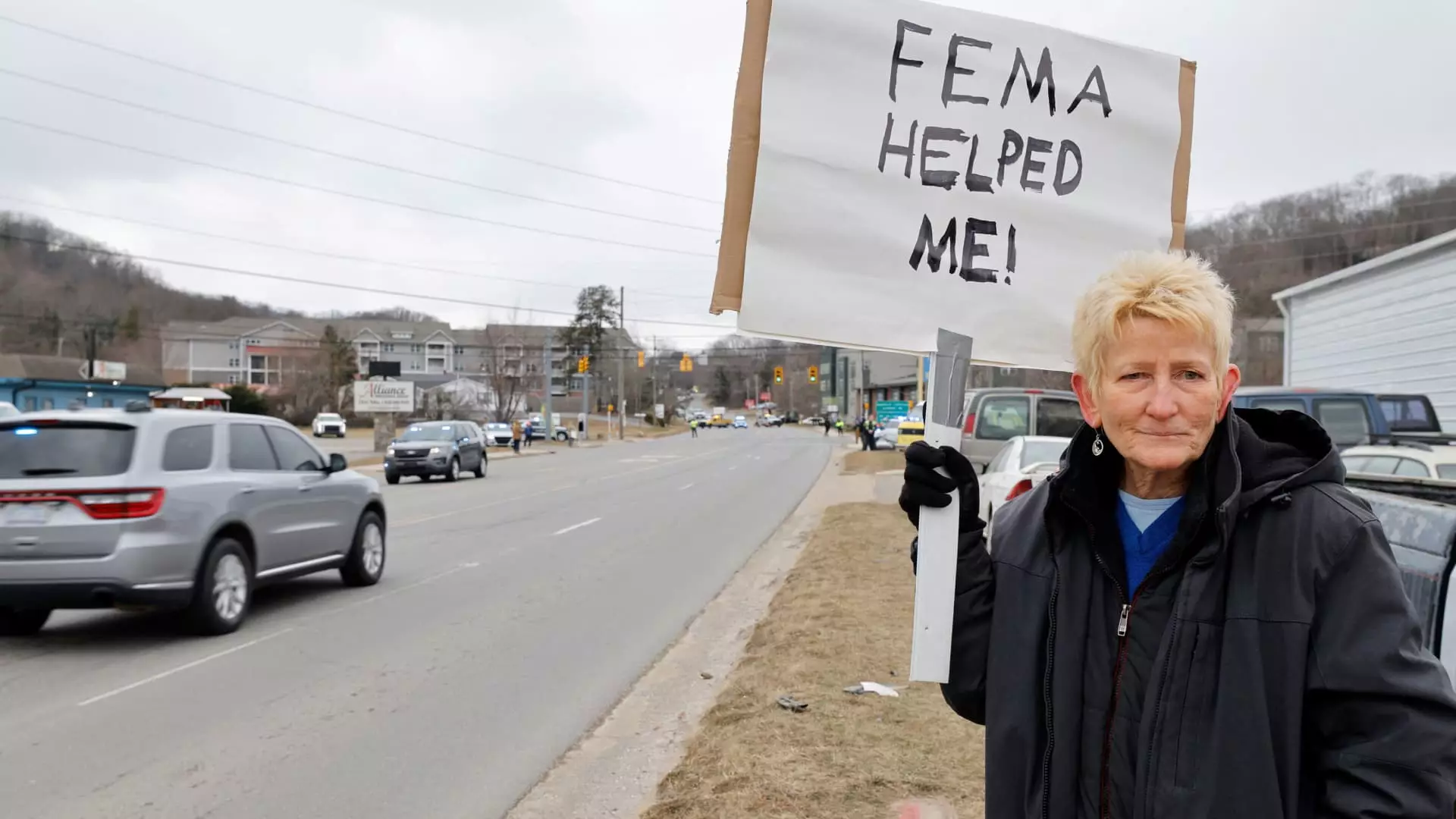As the Trump administration signals a move toward diminishing the role of the Federal Emergency Management Agency (FEMA), an unsettling reality emerges for homeowners across the nation. The proposed cuts are not merely budgetary decisions; they are a significant pivot in how America handles natural disasters and their aftermath. Experts staunchly advocate that the intention behind FEMA was never to supplant homeowner insurance policies. Instead, it was designed to provide critical, supplemental aid during federally declared disasters. Yet, as momentum builds to “phase out” this vital agency, homeowners may find themselves increasingly vulnerable and unprepared for the next calamity that strikes.
Charles Nyce, a risk management and insurance professor at Florida State University, brings to light the limitations and intentions inherent to FEMA’s aid. While the agency has been instrumental in providing temporary relief—often in the form of small grants for uninsured losses—the average payout has hovered around a meager $3,522. Such limited aid raises serious questions about the dependability of FEMA as a financial cushion. When fundamental government support is compromised, how can homeowners realistically prepare for disasters that become ever more likely with climate change?
The President’s Game Plan: More Control, Less Relief
In a suspiciously calculated move, President Trump indicated plans to take disaster relief directly under his White House control, claiming reforms are on the horizon. The idea of less money being allocated for disaster recovery is alarming, particularly given the noted cuts of $646 million from FEMA’s budget. According to reports, the necessary funds deployed by FEMA are often a lifeline for individuals and communities scrambling to recover from unexpected tragedies.
The ramifications of shifting financial responsibility from a federal agency to states and municipalities will inevitably put immense pressure on local governments. Whereas FEMA acted as a bulwark against financial hazard during disasters, its diminishing influence would likely lead to an inadequacy of resources—an ill-timed burden when communities may lack the scale to handle recovery efforts independently. Stalwart critics, such as Senator Raphael Warnock, have labeled these actions as “reckless,” and rightfully so; they don’t just represent strategic changes to federal oversight, but a significant decrease in accountability and support for those most affected.
Homeowners at a Crossroads: Reevaluating Insurance Policies
The proposed changes push homeowners into an unsettling paradigm shift, throwing their financial security into a precarious balance. As the Trump administration hints at diminishing FEMA’s role, it places an imperative on citizens to get their house in order—quite literally. Homeowners must take stock of their insurance policies and ascertain if they are adequately covered. It is not enough to rely on FEMA when the reality is that its assistance may become sparse and less accessible.
It cannot be overstated how important it is to consider flood insurance and evaluate other essential policies to fill in the gap that FEMA will likely leave behind. As Nyce points out, ensuring you aren’t underinsured means the difference between full compensation in a disaster or simply being left with pennies compared to looming financial losses. This trend toward self-reliance reveals a glaring truth: government support cannot be taken for granted, and the obligation to prepare now lies more heavily on the shoulders of homeowners than ever before.
Getting Prepared: A Call to Action
In the wake of these government-induced shifts, preparedness is no longer an option; it is an essential reality. Homeowners must arm themselves with knowledge and supplies—essential items like food, water, batteries, and communication tools become vital assets. Nyce’s emphasis on creating a personal emergency kit reflects a growing necessity for individual readiness.
Moreover, in addition to gathering supplies, homeowners should store important financial documents in a secure and easily accessible manner. By taking these proactive steps, individuals can cultivate a sense of security amidst the chaos that natural disasters can inflict. A shift in mindset—from complacency to one of vigilance—could prove crucial in safeguarding families and assets as institutional support wavers.
The Need for Advocacy: Preserving FEMA’s Essential Role
As citizens grapple with these stark changes thrust upon them, there must also be a collective push to advocate for FEMA’s continuation in its essential role. Ensuring comprehensive disaster preparedness isn’t merely a matter of individual responsibility, but of societal infrastructure. The dismantling of an agency dedicated to mitigating disasters serves as a grim reminder of governmental fragility; political choices can leave millions of Americans exposed to risk without any reliable fallback.
Mobilizing advocacy efforts to sustain FEMA’s vital functions should be at the forefront of conversations about disaster policy in America. The evolving realities call for action—citizens must demand that their government retains a robust agency fully geared toward disaster response and mitigation as climate challenges increasingly loom large. It is a fight for resilience, one that must not be lost in the quest for budget cuts and administrative reform.

